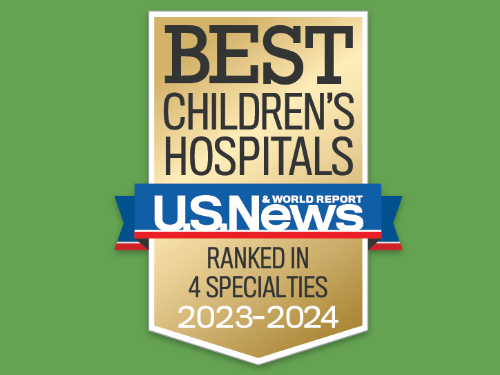What Are the Causes and Symptoms of Cerebral AVMs In Children?
Cerebral AVMs are congenital lesions that are typically present at birth but can recruit additional blood vessels over time. They are thought to be malformations in the development of the brain’s vessels during gestation.
In children, AVMs generally cause seizures, hemorrhage or stroke, the symptoms of which are severe headache, nausea, vomiting, sleepiness and/or weakness.
How Are Pediatric AVM’s Diagnosed?
Cerebral AVMs can be initially diagnosed using a head CT or brain MRI combined with a cerebral angiogram. In an angiogram, a specialist (most commonly an endovascular neurosurgeon or interventional neuroradiologist) threads a small microcatheter through the groin and injects dye into the cerebral arteries to obtain dynamic X-rays. These X-rays allow a better understanding of the flow of blood through the AVM and help determine the best treatment.
How Are AVM’s Treated?
Several options for treatment exist, all of which are performed routinely at Children’s Memorial Hermann Hospital:
Open microsurgery with intraoperative angiography is a common treatment option for cerebral AVMs. In this treatment, the child undergoes a surgical procedure under general anesthesia. A small window of bone is removed from the skull and the covering of the brain around the AVM is opened. Using a high-powered microscope, the AVM is gently separated from the surrounding brain structures and removed. An intraoperative angiogram is performed to confirm complete removal of the AVM before the window of bone is replaced on the skull and the surgery is completed.
The major advantage of this procedure is that it is usually curative when the entire AVM is removed. The McGovern Medical School at UTHealth/Children’s Memorial Hermann Hospital team is the only group in Houston to offer intraoperative angiography for pediatric AVM treatment.
Endovascular embolization is a minimally invasive procedure performed by the interventional neuroradiology/endovascular neurosurgery team. A cerebral angiogram is performed and a small microcatheter is used to inject tiny particles or glue-like materials to stop blood flow into the AVM. Once embolization occurs, the procedure is followed by microsurgery or stereotactic radiosurgery to repair the AVM. The benefit of embolization is to decrease hemorrhage during further treatment. A minority of AVMs can be cured with endovascular procedures alone.
Stereotactic radiosurgery is a noninvasive procedure performed under anesthesia by a neurosurgeon and a radiation oncologist, using either a linear accelerator or a Gamma Knife® radiation source. A titanium frame placed on the head allows a high-resolution MRI scan. The AVM is identified, precisely targeted, and irradiated. The major advantage of this procedure is that it is noninvasive, but it can take as long as 48 months for full treatment effect and AVM obliteration.
Any of these treatments may require continued clinical follow-up and, in some cases, repeat brain imaging or cerebral angiograph.
Contact Us
If you have any questions, use the online tool below to help us connect with you. To refer a patient or schedule an appointment, please contact our clinic using the information below.
- Pediatric Stroke Clinic
UT Professional Building
6410 Fannin, Suite 500
Houston, TX 77030
P: (713) 500-7164 - Pediatric Neurosurgery Clinic
6410 Fannin Street, Suite 950
Houston, TX 77030
P: (832) 325-7234 - UTHealth Houston Gulf State Hemophilia and Thrombophilia Center
6655 Travis Street, Suite 100
Houston, TX 77030
P: (713) 500-8366
To contact Children's Memorial Hermann Hospital, please fill out the form below.
